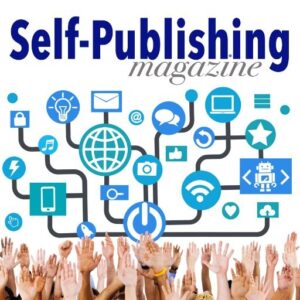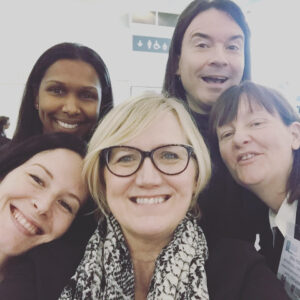
Rachel Gregory, editor of Matador's online Self-publishing Magazine
Rachel Gregory, editor of Matador's Self-publishing Magazine, shares a useful reminder that the research necessary to the success of an indie author doesn't stop the minute you self-publish your book. Instead, you should cultivate an enquiring mind, continuing to research and take on new ideas throughout the self-publishing process.
At the Writing Stage
A raft of indecisions are involved in the creation process of a fledgling book, before publishing becomes a priority. This is the point when the devil is in the difficult details:
- finding inspiration
- making time to write
- creating plotlines involving something you know little about
- negotiating writers’ block
These issues arise long before you contemplate how to publish – where to spend your hard-earned money or when to invest in your own talents.
At this early stage, most writers research without hesitation, with an abundance of resources readily available to them. They attend talks, consult magazines and specialist writing blogs or websites.
Every bit of this is worthwhile research.
When Planning Publication
The majority of writers go on to look for further guidance at the beginning of the self-publishing process, when they are poised to start publishing independently, to make the transition from writer to indie author. Indies are skilled at pre-publication research, which is an absolutely essential part of self-publishing.
If you are thinking about self-publishing a book, ebook or audiobook, you probably have a decent idea of what to do. You might well have a timeline, a list of contacts and a budget set aside to cover the cost of any work you hope to outsource.
Your iCal will contain reminders about events to attend and suppliers to call for comparative costs. Doubtless, before deciding which formats to publish in, you will have taken steps to identify your target audience.
How did you get to this point? You did your research.
At this early stage, some writers haven’t quite completed their manuscript but want to be armed with information; others are finished and focused on preparation.
Many have designed a cover, created print files and are enquiring as to whether they can get competitive rates with printers or set up distribution links through a well-connected company.
Others want to know details about the mechanics of self-publishing, such as how to purchase an ISBN. Perhaps, they are unsure how best to market their book.
Alternatively, they could have a PR company lined up to complete their publicity; they might have drawn out a DIY media plan for the six months leading to publication but have a couple of queries.
Enquiring into the options now, regardless of prior knowledge or experience, is to be recommended.
This is an admirable step… but what about the rest of the research?
During the Self-publishing Process
Next, comes ongoing education while publishing. However well you have prepared, you will meet unexpected challenges during the self-publishing process, even if you have done it all before. Decisions will need to be made that no amount of prior preparation could have avoided.
- Some might be things that had never occurred to you: ‘Do you own the rights do use that image?’
- Others will be pleasant dilemmas that you had no idea you would welcome: ‘This would work well as an enhanced ebook with sound effects.’
Be open to relying on resources and consulting with experts. Try not to see a change of plan as a problem – it is natural – but it will require further research.
Research to Maintain Post-Publication Momentum

Matador answers self-publishing questions via its online magazine for indie authors – and you don't have to use their services to be able to access their magazine
You have officially self-published. Congratulations! Your hard work is starting to pay off. Your marketing’s underway, sales are trickling in. Is the time for investigating over?
That depends…
- How do you plan to refresh sales once initial interest has died down?
- Are you lacking inspiration for the next in your six-book saga?
- At what point, if at all, should you redesign your cover – or do trends stay current indefinitely?
- A customer wants to recommend it to his friends in South Africa. What is the most cost effective way of making a printed book available overseas?
Only by researching, can you keep an eye on publishing trends so that you can make post-publication decisions.
Finding Answers within a Collaborative Community

A famously collaborative community – ALLi members at the Londo Book Fair earlier this year
You will find answers to the majority of your questions through the indie author community, including of course the ALLi Author Advice Centre blog on which you're reading this post, and Matador's online Self-Publishing Magazine. (Matador is a Partner Member of the Alliance of Independent Authors.)
Social media is the indie author’s friend: post a question or a poll on Twitter. It is also a great platform from which to learn from experts.
This comes partly through knowledge collaboration and in part through the use of invaluable resources that are dedicated to helping self-published authors.
It's not by chance that indies are known for their collective wisdom.
OVER TO YOU Which question has provied your biggest stumbling block during your self-publishing journey and how did you overcome it? Join the conversation via the comments thread!
Research is essential for #authors throughout the #selfpublishing process says @selfpublishingmag Share on XANOTHER GREAT POST ABOUT RESEARCH – this time about researching your book's subject matter




